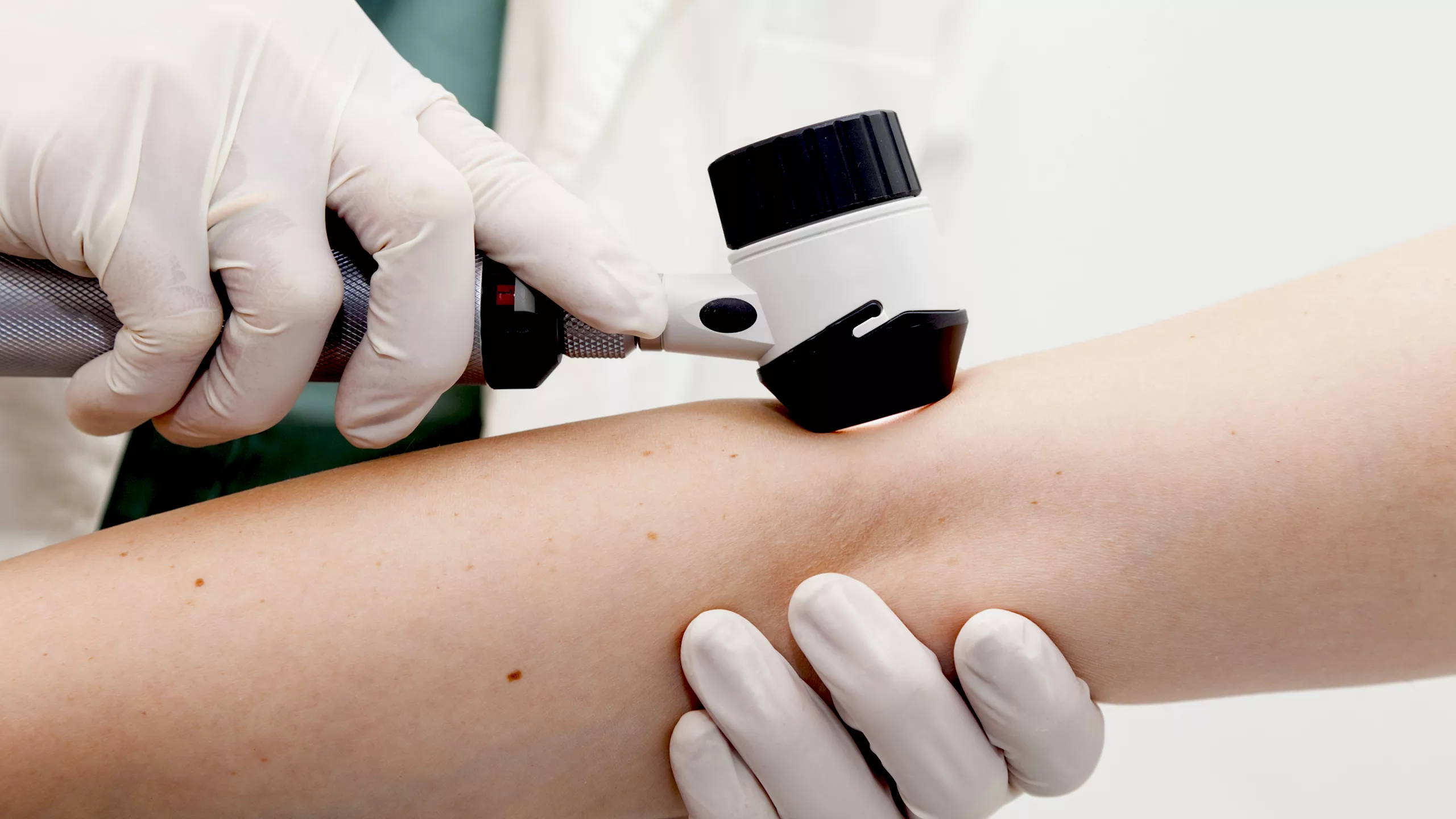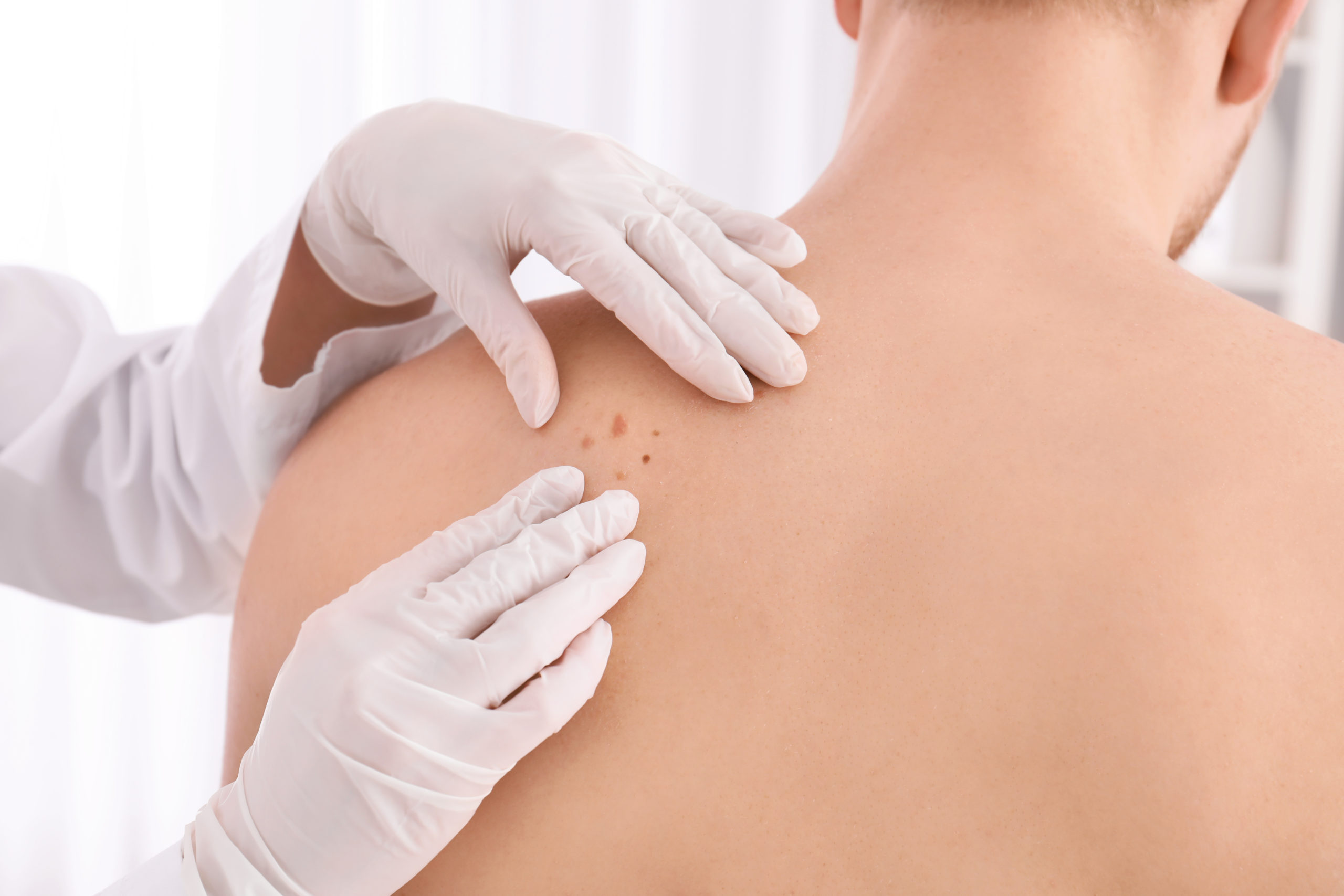Skin Biopsy
At CoreMed Plus, we understand the importance of diagnosing and treating skin conditions accurately and effectively. That’s why we offer skin biopsy services, a medical procedure that involves the removal of a small sample of skin tissue for laboratory testing. A skin biopsy is a safe and minimally invasive procedure that can provide valuable diagnostic information for various skin conditions.
Our experienced healthcare providers work closely with patients to evaluate their medical history and overall health to determine if a skin biopsy is an appropriate diagnostic tool. We use the latest techniques and technologies to perform skin biopsies, ensuring patients receive safe and effective care.
Skin biopsies are commonly used to diagnose various skin conditions, including skin cancers, infections, and autoimmune disorders. Suppose you have a suspicious skin lesion, skin infection, autoimmune disorder, allergic reaction, unknown skin condition, or need follow-up monitoring for a skin condition. In that case, our healthcare providers may recommend a skin biopsy to determine the condition’s cause and the appropriate course of treatment.
At CoreMed Plus, we understand that waiting for medical care can be stressful and frustrating. That’s why we offer timely and efficient care to ensure that patients receive the attention and treatment they need as quickly as possible. Our healthcare providers take the time to listen to patient’s concerns and work collaboratively with them to develop a personalized treatment plan that meets their individual needs.
We also understand that many patients may feel anxious or apprehensive about undergoing a skin biopsy. That’s why our healthcare providers take the time to explain the procedure and answer patients’ questions or concerns. We strive to create a comfortable and supportive environment where patients can feel confident in their care.
In addition to skin biopsy services, CoreMed Plus offers a wide range of medical services to promote health and wellness. From nutrition consultations to smoking cessation programs, our experienced healthcare providers work with patients to develop personalized treatment plans that address their unique needs and goals.
At CoreMed Plus, we are committed to providing the highest quality care to our patients. If you have a suspicious skin lesion or have been diagnosed with a skin condition that requires a biopsy, talk to our healthcare providers about whether a skin biopsy may be right for you. We are here to support you every step of the way and help you achieve optimal health and wellness.

What is a Skin Biopsy
A skin biopsy is a medical procedure involving removing a small sample of skin tissue for laboratory testing. Skin biopsies are commonly used to diagnose various skin conditions, including skin cancers, infections, and autoimmune disorders.
The healthcare provider will first clean the skin and numb the area with a local anesthetic during a skin biopsy. The healthcare provider will then use a special tool to remove a small piece of skin tissue, typically about the size of a pencil eraser. The procedure may cause mild discomfort or a feeling of pressure, but it is generally well-tolerated by most patients.
The skin biopsy sample is then sent to a laboratory for analysis. A dermatopathologist, a specialized physician who is trained to diagnose skin diseases, will examine the tissue under a microscope to look for abnormalities or changes in the skin cells. The healthcare provider may recommend further testing or treatment depending on the biopsy results.There are several types of skin biopsies, including punch biopsy, shave biopsy, and excisional biopsy. The type of biopsy performed will depend on the location and size of the skin lesion, as well as the healthcare provider’s preferences and expertise.
A punch biopsy involves using a special tool to punch a small, circular piece of skin tissue out of the affected area. This type of biopsy is commonly used to diagnose skin cancers and other types of skin lesions. A shave biopsy involves using a razor blade or scalpel to shave off a thin layer of skin tissue from the lesion’s surface. This type of biopsy is commonly used to diagnose skin lesions that are suspected to be benign or non-cancerous.
An excisional biopsy involves surgically removing the entire skin lesion and a small margin of normal-looking skin tissue around it. This type of biopsy is commonly used to diagnose skin cancers or other types of skin lesions that may have spread to nearby tissues. A skin biopsy is a safe and effective procedure that can provide important diagnostic information for a variety of skin conditions. If you have a suspicious skin lesion or have been diagnosed with a skin condition that requires a biopsy, talk to your healthcare provider about whether a skin biopsy may be right for you.
Why Someone Might Need a Skin Biopsy
A skin biopsy is a medical procedure involving removing a small sample of skin tissue for laboratory testing. Skin biopsies are commonly used to diagnose various skin conditions, including skin cancers, infections, and autoimmune disorders. Here are some reasons why someone might need a skin biopsy:
- Suspicious Skin Lesion: If you have a skin lesion that appears suspicious, such as a mole that has changed in size, shape, or color, or a sore that doesn’t heal, your healthcare provider may recommend a skin biopsy to rule out the possibility of skin cancer.
- Skin Infection: If you have a skin infection that is not responding to treatment or that is spreading, your healthcare provider may recommend a skin biopsy to determine the cause of the infection and the appropriate course of treatment.
- Autoimmune Disorder: If you have a skin condition that is suspected to be an autoimmune disorder, such as psoriasis or lupus, your healthcare provider may recommend a skin biopsy to confirm the diagnosis and determine the severity of the condition.
- Allergic Reaction: If you have a skin reaction that appears to be an allergic reaction, such as hives or a rash, your healthcare provider may recommend a skin biopsy to determine the cause of the reaction and the appropriate treatment.
- Unknown Skin Condition: If you have a skin condition that is not easily diagnosed or does not respond to initial treatment, your healthcare provider may recommend a skin biopsy to determine the cause and the appropriate course of treatment.
- Follow-Up Monitoring: If you have been diagnosed with a skin condition, such as skin cancer, your healthcare provider may recommend regular skin biopsies to monitor the condition’s progression and ensure that it is being properly managed.
Skin biopsies are commonly used to diagnose various skin conditions, including skin cancers, infections, and autoimmune disorders. Suppose you have a suspicious skin lesion, skin infection, autoimmune disorder, allergic reaction, unknown skin condition, or need follow-up monitoring for a skin condition. In that case, your healthcare provider may recommend a skin biopsy to determine the condition’s cause and the appropriate course of treatment.

Steps to a Skin Biopsy
A skin biopsy is a medical procedure involving removing a small sample of skin tissue for laboratory testing. Here is a step-by-step guide to what a skin biopsy procedure may consist of:
Step 1: Preparation, The healthcare provider, will first clean the area where the biopsy will be performed and may apply a local anesthetic to numb the area. Depending on the size and location of the skin lesion, the healthcare provider may use a topical or injectable anesthetic.
Step 2: Sample collection Once the area is numb, the healthcare provider will use a special tool to remove a small piece of skin tissue from the affected area. The type of biopsy performed will depend on the location and size of the skin lesion, as well as the healthcare provider’s preferences and expertise.
A punch biopsy involves using a special tool to punch a small, circular piece of skin tissue out of the affected area. A shave biopsy involves using a razor blade or scalpel to shave off a thin layer of skin tissue from the lesion’s surface. An excisional biopsy involves surgically removing the entire skin lesion and a small margin of normal-looking skin tissue around it.
Step 3: Wound care After the sample is collected, the healthcare provider will apply pressure to the biopsy site to stop any bleeding. Depending on the size of the biopsy site, the healthcare provider may use a small bandage or adhesive strips to cover the wound. The healthcare provider will provide instructions on caring for the wound, such as keeping it clean and dry.
Step 4: Laboratory testing The skin biopsy sample is then sent to a laboratory for analysis. A dermatopathologist, a specialized physician who is trained to diagnose skin diseases, will examine the tissue under a microscope to look for abnormalities or changes in the skin cells. Depending on the results of the biopsy, the healthcare provider may recommend further testing or treatment.
Step 5: Follow-up: The healthcare provider will schedule a follow-up appointment to discuss the biopsy results and determine the appropriate course of treatment. If the biopsy results indicate a skin condition, such as skin cancer, the healthcare provider will recommend the appropriate treatment, including surgery, radiation therapy, or chemotherapy.
Overall, a skin biopsy is a safe and effective procedure that can provide important diagnostic information for a variety of skin conditions. If you have a suspicious skin lesion or have been diagnosed with a skin condition that requires a biopsy, talk to your healthcare provider about whether a skin biopsy may be right for you.
Meet Dr. Mark Richter
I grew up in Florida as the oldest of five sons. After earning my degree from the University of Florida, I pursued my medical education in the Dominican Republic. In 1988, I began my Family Practice Residency at the “old” Pontiac General Hospital. I have been providing medical care to the same community since 1991, first in Waterford and later at our current location in White Lake, where I continue to practice today. I take pride in being board certified by the American Academy of Family Physicians and remain committed to Primary Care.
I am passionate about promoting a healthy lifestyle, including a proper “balanced” diet, exercise, exposure to healthy outdoor activities, and achieving work-life balance. I married my Medical School Sweetheart, Barbara, and we are fortunate to have two adult children and a granddaughter. We have been residents of Oakland County since 1988 and enjoy all that Michigan has to offer.
Meet Briahnnon Long NP-BC
Briahnnon Long, NP-BC, graduated from Oakland University in 2009 with a Bachelor of Science in Nursing and worked as a nurse in the Cardiac Intensive Care Unit. She then pursued her Master of Science in Nursing. She graduated from The University of Michigan Flint in 2020 and became board certified by The American Nurses Credentialing Center as a Family Nurse Practitioner.
She works in the acute care setting as a hospitalist and in the subacute care setting at a skilled nursing facility. She has special interests in health and wellness, preventative medicine, and chronic care management in the primary care setting. She loves being outdoors, cheering on her husband and two children in hockey, and camping and boating in the summer.
Contact Information
If you’re ready to take charge of your health and embark on a journey toward a healthier, happier life, we invite you to contact us today. Our compassionate and knowledgeable staff is excited to take your call and help you on your health journey. We will work closely with you to develop a customized treatment plan that is right for you and provide the support and care you need every step of the way.
Don’t let health concerns hold you back – contact CoreMed Plus today and let us help you achieve optimal health and wellness. We look forward to hearing from you and helping you achieve a healthier, happier life.
- Email: frontdesk@coremedplus.com
- Phone: +1 248-666-6005


